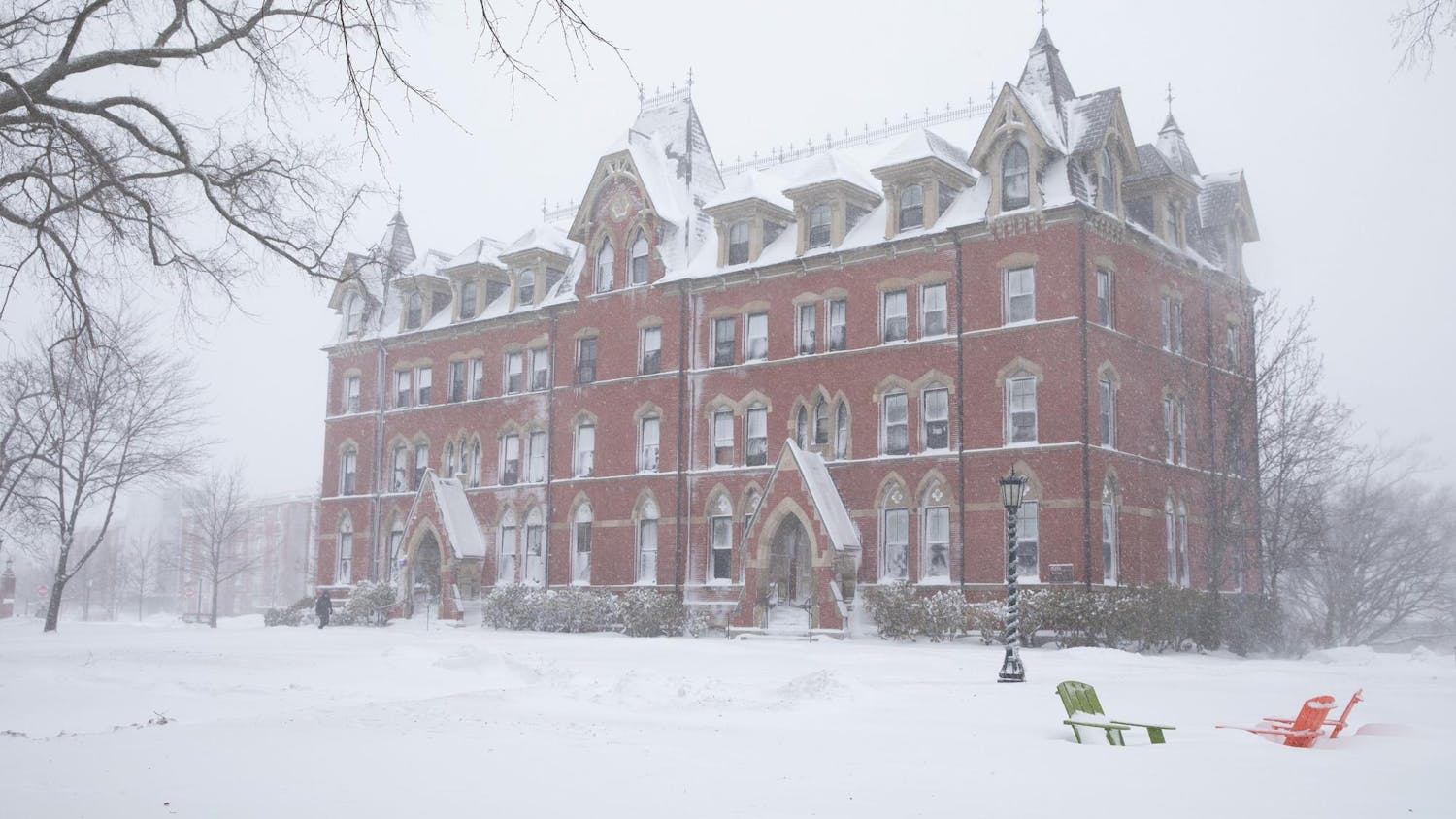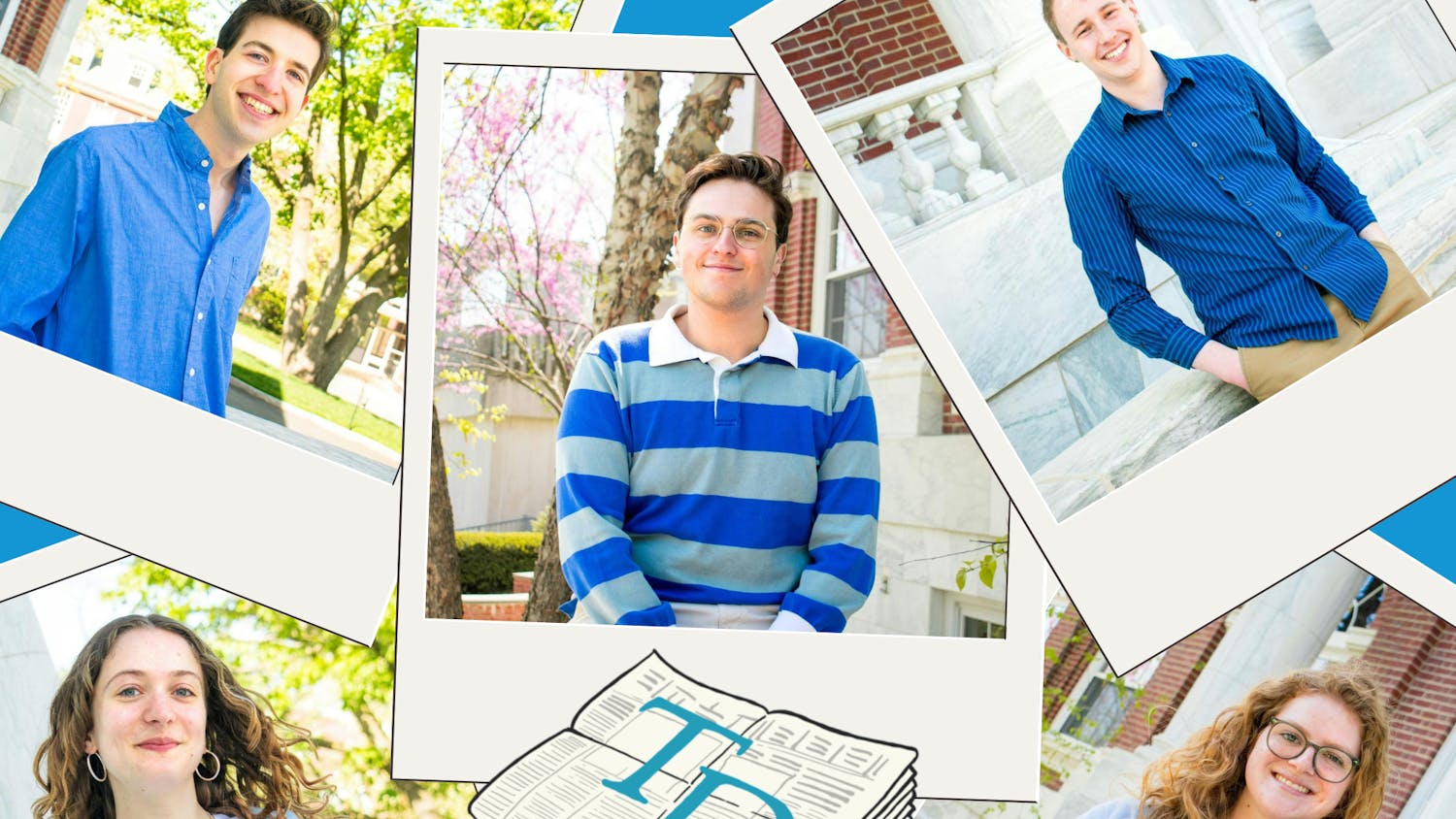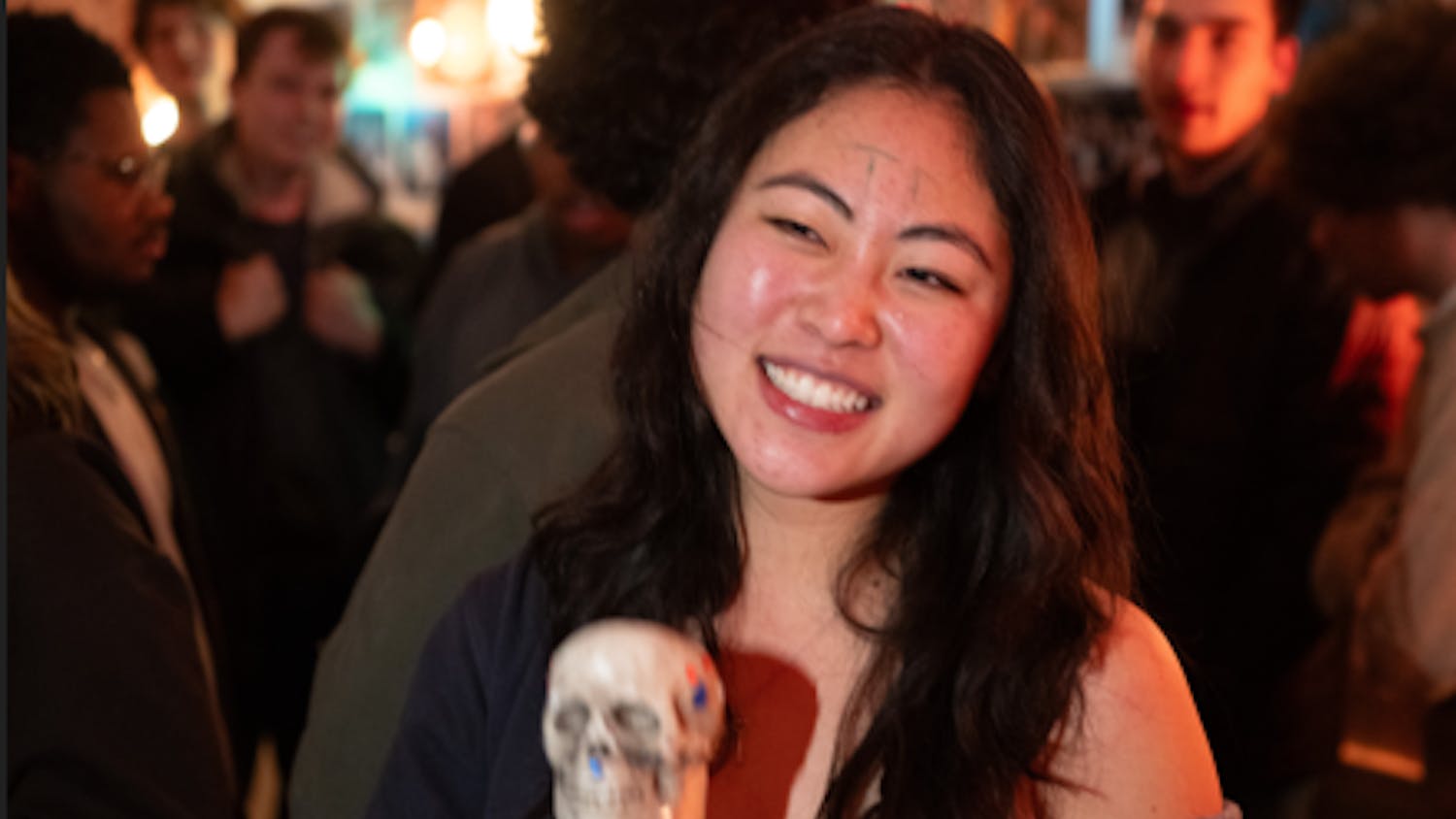Throughout this week, the Tufts chapter of Students for Justice in Palestine (SJP), a national student-led solidarity movement advocating for Palestinian rights, has held a series of events in their annual “Israeli Apartheid Week.”
“Tufts SJP holds Israeli Apartheid week as part of an international series of events that seek to raise awareness of Israel’s apartheid system over the Palestinian people, as well as Palestine’s culture, history and resistance,” Amira Al-Subaey, a junior in SJP, explained.
The week features multiple panels and events. On Monday, SJPhosted two representatives from Women in Hebron, a Palestinian nonprofit fair trade cooperative. On Tuesday, the students hosted Mass against HP, a boycott organization aimed at pushing elected officials in Massachusetts to divest from Hewlett-Packard (HP) due to the company’s investments in Israel, and its role in U.S. deportations and mass incarceration. Wednesday saw a screening of the film "1948: Creation & Catastrophe." On Thursday, the club hosted representatives from the International Solidarity Movement (ISM) to talk about their nonviolent resistance efforts. On Friday, they will host Randa Wahbe, a graduate student at Harvard, to speak about Palestinian political prisoners in Israeli jails.
SJP members say they hope this week’s events help draw attention to the Palestinian issue.
“We are trying to bring people in who have a wide variety of relationships with Palestinian organizing and solidarity,” Elise Sommers, a member of SJP, explained.
Sommers, a junior, also emphasized the importance of simply taking up space on campus to draw attention to the issues, which the club strived to do through the “Apartheid Wall” constructed on the lower campus center patio.
Throughout the week, SJP has emphasized the importance of college student involvement, drawing parallels to the role of young people in the anti-apartheid movement and boycotts of South Africa.
Sommers urged the Tufts community to get involved.
“We as Tufts students actually have a huge responsibility and a huge role in using BDS [Boycott, Divestment, and Sanctions] to push for justice,” they said.
Spencer Zeff, the co-president of Tufts Friends of Israel (FOI), which defines itself as a nonpartisan, areligious pro-Israel advocacy group, expressed his concerns about the week's events.
“Tufts FOI is concerned about actions that are a part of Israel Apartheid Week that make the pro-Israel and Jewish communities feel vulnerable and unsafe on campus," Zeff, a sophomore, said. "We believe everyone is able to have discussions and their own opinions. However, we condemn any actions that negatively impact the lives of those with pro-Israel opinions.”
Zeff explained that the club is also concerned about the use of the word "apartheid” in describing this week’s events.
“The claim of apartheid in making the connection between Israel and South African apartheid is absurd. In Israel, the human and equal rights of all people are guaranteed under the law, compared to the systematic discrimination that existed in South Africa,” Zeff said.
As a part of the “Tufts Students for Two States” coalition, Tufts FOI will be partnering with Hillel and J Street U to host a series of events next week, according to Zeff. He clarified that next week’s events are not a response to Israeli Apartheid Week; rather, he hopes the events will bring together the Tufts community to learn about peace efforts in the region.
Both SJP and FOI members expressed concerns about dialogue between the groups.
Sommers explained that SJP was wary of an inevitable imbalance in power dynamics.
“Discussion and dialogue are very complicated when it comes to Israel and Palestine because of the massive gap in power, in terms of oppressor and oppressed,” they said.
Sommers also expressed concern over Hillel’s standard of operations, which prohibits any Hillel-affiliated group, including FOI, from partnering with a group that supports the BDS movement.
Tufts Hillel's Israel Policy, written in 2011 and revised in 2013, outlines Hillel's position on such groups.
"Hillel is not inclined to partner with, house, or host organizations, groups or speakers that as a matter of policy or practice intend to harm Israel or Jewish communities, organizations, institutions or individuals because of their political or ideological positions, including those who ... support boycott of, divestment from, or sanctions against the State of Israel," the policy states.
Sommers said that support for BDS is essential to conversations about a two-state solution.
“For them to talk about two state solutions without having any voices that support [BDS], that’s a very skewed perspective on a peace and justice solution,” they said.
Zeff also expressed grievances over a lack of a joint discussion.
“I don’t think that having a week dedicated to talking about supposed apartheid in Israel is the most productive way to promote the human rights for people in the region, and I wish that groups like SJP were willing to engage with groups like FOI in discourse and discussion,” he said.
Students for Justice in Palestine hosts annual 'Israeli Apartheid Week'

The Tufts chapter of Students for Justice in Palestine holds a demonstration outside of Olin Center on April 12.





